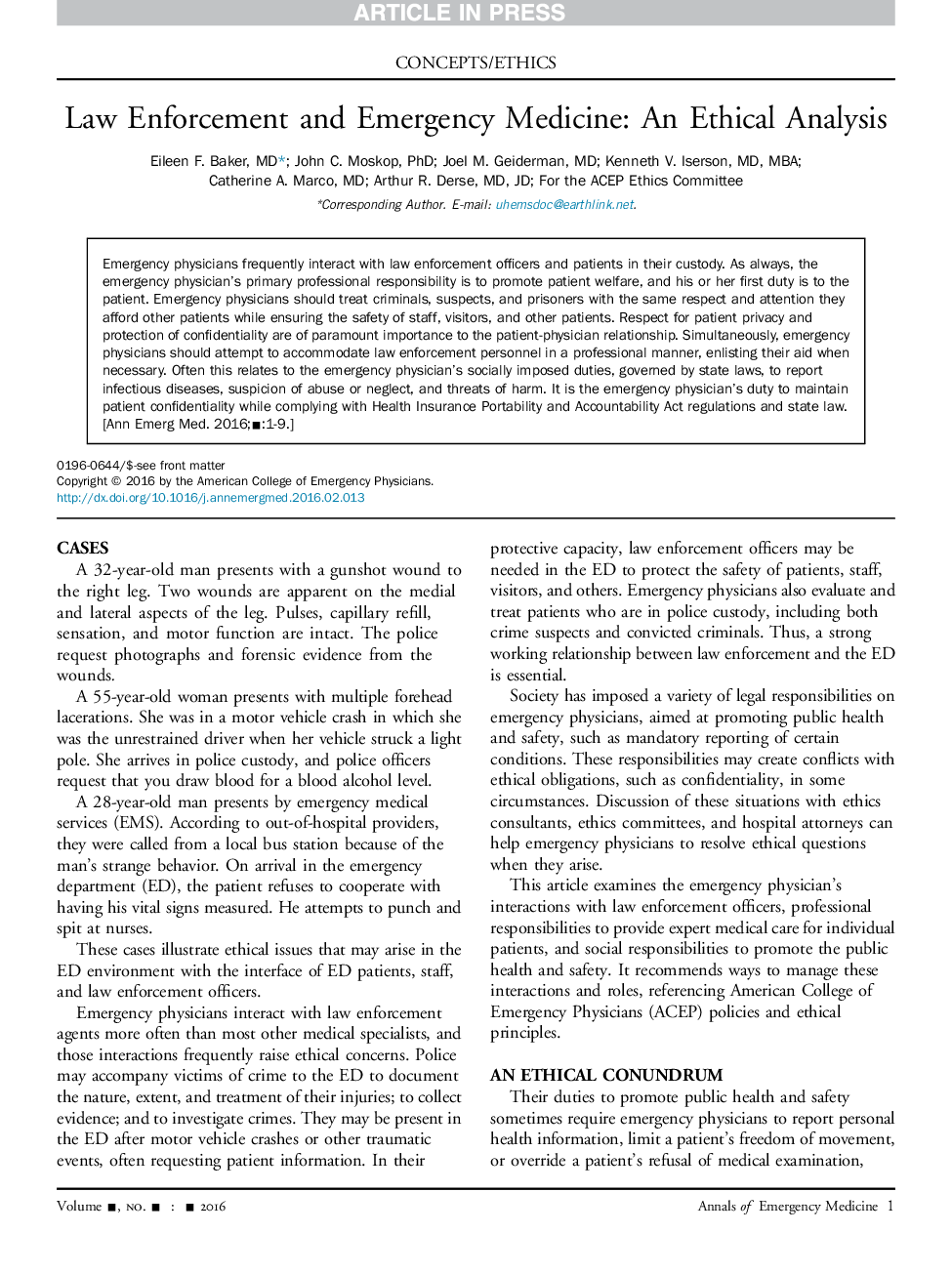| Article ID | Journal | Published Year | Pages | File Type |
|---|---|---|---|---|
| 5652082 | Annals of Emergency Medicine | 2016 | 9 Pages |
Abstract
Emergency physicians frequently interact with law enforcement officers and patients in their custody. As always, the emergency physician's primary professional responsibility is to promote patient welfare, and his or her first duty is to the patient. Emergency physicians should treat criminals, suspects, and prisoners with the same respect and attention they afford other patients while ensuring the safety of staff, visitors, and other patients. Respect for patient privacy and protection of confidentiality are of paramount importance to the patient-physician relationship. Simultaneously, emergency physicians should attempt to accommodate law enforcement personnel in a professional manner, enlisting their aid when necessary. Often this relates to the emergency physician's socially imposed duties, governed by state laws, to report infectious diseases, suspicion of abuse or neglect, and threats of harm. It is the emergency physician's duty to maintain patient confidentiality while complying with Health Insurance Portability and Accountability Act regulations and state law.
Related Topics
Health Sciences
Medicine and Dentistry
Emergency Medicine
Authors
Eileen F. MD, John C. PhD, Joel M. MD, Kenneth V. MD, MBA, Catherine A. MD, Arthur R. MD, JD, ACEP Ethics Committee ACEP Ethics Committee,
